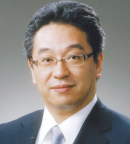SEVERAL STUDIES presented at the 2019 Gastrointestinal Cancers Symposium evaluated the benefits of neoadjuvant treatment in patients with pancreatic cancer—and in patients deemed fully resectable, not just “borderline” resectable.1-3
Although the standard of care for resectable pancreatic ductal adenocarcinoma remains surgery followed by adjuvant chemotherapy, approximately 50% of patients are unable to receive adjuvant treatment due to postoperative complications. Neoadjuvant chemotherapy, it is believed, has several theoretical advantages, including early treatment of disease, assessment of responsiveness to chemotherapy, downstaging of nodal disease, improved operability, and greater achievement of negative surgical margins.
Neoadjuvant S-1/Gemcitabine

Michiaki Unno, MD, PhD
MICHIAKI UNNO, MD, PhD, of the Tohoku University Graduate School of Medicine, Sendai, Japan, presented findings from the phase II/ III Prep-02/JSAP-05 trial.1 The study evaluated upfront surgery followed by adjuvant treatment with the oral fluoropyrimidine S-1 for 6 months vs neoadjuvant gemcitabine plus S-1 for 2 cycles, followed by surgery and adjuvant S-1. The study enrolled 364 treatment-naive patients with pancreatic adenocarcinoma deemed to have resectable disease at diagnosis (without arterial abutment, including hepatic, celiac, or superior mesenteric artery). Excluding patients who were not resected or were misclassified for eligibility, a total of 269 patients underwent resection with curative intent.
The primary endpoint for phase II was the resection rate, which was 93% with neoadjuvant therapy and 82% with upfront surgery. These results justified moving to a phase III trial, with a primary endpoint of overall survival.
“We believe that neoadjuvant chemotherapy could be a new standard for patients with resectable pancreatic adenocarcinoma.”— Michiaki Unno, MD, PhD
Tweet this quote
Prep-02/JSAP-05 demonstrated a significant survival benefit of neoadjuvant therapy, with a median overall survival of 36.7 months vs 26.6 months for upfront surgery (hazard ratio [HR] = 0.72; P = .015). The 2-year overall survival rate was 63.7% and 53.5%, respectively, and all subgroups appeared to benefit from the neoadjuvant approach. Lymph node metastases were significantly decreased in the neoadjuvant group (59.6% vs 81.5%). There were no significant differences in operating time, bleeding events, operation method, and operating morbidity, and no patient died of a surgery-related complication in either group.
Based on the superior outcomes, Dr. Unno commented: “We believe that neoadjuvant chemotherapy could be a new standard for patients with resectable pancreatic adenocarcinoma.”
Hematologic grade 3 or 4 adverse events, primarily leukopenia and neutropenia, were frequently observed in the neoadjuvant group. However, the approach was safe and feasible, he indicated.
Is That Really Resectable? SWOG S1505
SWOG S1505 is a randomized phase II study of patients with resectable disease, aimed at determining the most promising perioperative regimen to test in a larger trial. In a poster presented at the 2019 Gastrointestinal Cancers Symposium, Davendra Sohal, MD, MPH, of the Cleveland Clinic, reported that 29% of enrolled patients were found, on central review, not to have resectable disease.2 The main reasons were venous involvement, arterial involvement, and the presence of metastatic disease.

“This is the first National Clinical Trials Network study of neoadjuvant chemotherapy in resectable pancreatic cancer, and it accrued rapidly. Clinical outcomes will be reported sometime in 2020.”— Davendra Sohal, MD, MPH
Tweet this quote
“This study was conducted across the nation, at high-volume, as well as low-volume centers,” Dr. Sohal said. “The findings suggest that in the real world, what physicians think is resectable, may not be so. And it highlights the need for improved multidisciplinary care, central radiologic review, and prospective quality control.”
SWOG’s prediction is that multiagent regimens may enhance outcomes in the curative setting, as they do in the metastatic setting, especially since preoperatively they may be better tolerated. Neoadjuvant therapy may have other advantages as well, including early control of systemic disease and identification of patients with chemotherapy-resistant tumors, he added.
“The current standard of care for resectable pancreatic cancer, per the ASCO guidelines, remains upfront surgery, followed by adjuvant FOLFIRINOX (fluorouracil infusion, irinotecan, oxaliplatin). But the neoadjuvant approach can be used—ASCO guidelines permit that in patients with resectable disease but under a clinical trial protocol or at least under the guidance of a multidisciplinary team,” Dr. Sohal said. He expects that some clinicians, however, are using neoadjuvant therapy “ad hoc,” and he commented, “We can write guidelines, but we can’t enforce them. SWOG wants to see outcomes.”
Patients received 12 weeks of neoadjuvant chemotherapy with either modified FOLFIRINOX or gemcitabine/nab-paclitaxel followed by surgical resection or 12 weeks of identical chemotherapy postoperatively. The primary outcome was 2-year overall survival. The investigators are also assessing differences in tolerability between the two regimens.
In the current analysis, Dr. Sohal reported that 29% of patients were misclassified as having resectable disease, and the investigators want to know why. “If they don’t have resectable disease, they should not be in this bucket,” he said. For patients who were ultimately deemed eligible, 84% completed neoadjuvant treatment, and 77% reached surgery.
“This is the first National Clinical Trials Network study of neoadjuvant chemotherapy in resectable pancreatic cancer, and it accrued rapidly. Clinical outcomes will be reported sometime in 2020,” according to Dr. Sohal.
The SWOG trial is among several studies evaluating neoadjuvant therapy, and Dr. Sohal cautioned against comparing outcomes with those from adjuvant trials. “Remember, when we get to adjuvant therapy, we have already selected patients who got through surgery in good shape,” he noted.
Trend Toward Better Survival
IN REPORTEDLY the largest retrospective study to date comparing treatment algorithms for resected stage I pancreatic cancer, overall survival was significantly worse with surgery alone vs adjuvant or neoadjuvant therapy and was similar between the adjuvant and neoadjuvant groups, reported Samit K. Datta, MD, a fellow in gastrointestinal disease, Aurora Health Care, Milwaukee.3

“We may be starting to see a trend toward a statistically significant advantage with neoadjuvant therapy.”— Samit K. Datta, MD
Tweet this quote
Many institutions are increasingly shifting to neoadjuvant therapy followed by surgery for both resectable and borderline resectable diseases, he said, and this shift is now reflected in the National Comprehensive Cancer Network® (NCCN) Clinical Practice Guidelines in Oncology. The researchers evaluated the long-term mortality of patients with stage I surgically resected disease based on the chosen treatment. They identified 9,684 patients in the National Cancer Database treated between 2000 and 2014 with surgery alone (n = 2,266), surgery followed by adjuvant chemotherapy (n = 6,222), or neoadjuvant chemotherapy and then surgery (n = 1,196). Patients who underwent surgery alone tended to be older and had higher Charlson Comorbidity Index scores.
After a median follow-up of 17 to 29 months (depending on the treatment), there was no difference in 30-day mortality between upfront surgery and neoadjuvant therapy. For long-term mortality (> 90 days), compared with adjuvant therapy, surgery alone raised the risk 36% (P < .001), whereas neoadjuvant therapy was comparable to adjuvant therapy (hazard ratio = 0.929; P = .064).
Dr. Datta acknowledged that since the 2014 cutoff, adjuvant regimens have been changing; thus, “this study is more a reflection of where we’ve been and where we are going. We may be starting to see a trend toward a statistically significant advantage with neoadjuvant therapy.” ■
DISCLOSURE: Dr. Unno has received honoraria from Boston Scientific, Chugai Pharma, Covidien/Medtronic, Daiichi Sankyo, Eisai, Johnson & Johnson, Merck Serono, Nobelpharma, Novartis, Ono Pharmaceutical, Pfizer, Taiho Pharmaceutical, Takeda, Teijin Pharma, and Yakult Honsha; and has received institutional research funding from Asahi Kasei, Chugai Pharma, Pfizer, Taiho Pharmaceutical, Takeda, and Yakult Honsha. Dr. Sohal has received honoraria from Foundation Medicine, has served as a consultant/advisor to Perthera, has received travel expenses from Foundation Medicine, and has received institutional research funding from Agios, Bayer, Bristol-Myers Squibb, Celgene, Genentech, Incyte, Novartis, and OncoMed Pharmaceuticals. Dr. Datta reported no conflicts of interest.
REFERENCES
1. Unno M, Motoi F, Matsuyama Y, et al: Randomized phase II/III trial of neoadjuvant chemotherapy with gemcitabine and S-1 versus upfront surgery for resectable pancreatic cancer (Prep-02/JSAP-05). 2019 Gastrointestinal Cancers Symposium. Abstract 189. Presented January 18, 2019.
2. Sohal D, McDonough S, Ahmad SA, et al: SWOG S1505: Initial findings on eligibility and neoadjuvant chemotherapy experience with mFOLFIRINOX versus gemcitabine/nab-paclitaxel for resectable pancreatic adenocarcinoma. 2019 Gastrointestinal Cancers Symposium. Abstract 414. Presented January 18, 2019.
3. Datta SK, Belini G, Singh M, et al: Survival outcomes between surgery with adjuvant therapy compared to neoadjuvant therapy with surgery in stage I pancreatic adenocarcinoma: Results from a large national cancer database. 2019 Gastrointestinal Cancers Symposium. Abstract 335. Presented January 18, 2019.


